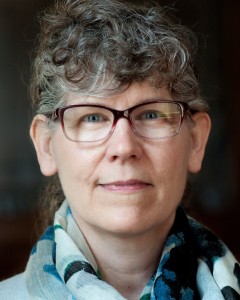I am a racist; most likely you are, too. My racism took root in the ’60s in my hometown, Detroit. I was 7 when Detroit burned. If you are a Baby Boomer, chances are your racist tendencies were reinforced by watching Detroit burn on the evening news in 1967. That summer my Dad told me over and over that it was the fault of the black people— the idea of “righteous rebellion” had not reached mainstream America.
Fortunately, Mom tempered this racist indoctrination, constantly insisting that there is good in everybody. I arrived in Rochester in the ’80s with this duality: believing strongly that there is good in everyone and trying to squelch my internal racist legacy. I believe it is this same duality that leads us to label Rochester’s youngest as “children at risk.” This label is not serving our children very well.

We’ve been struggling with the cycle of poverty/poor education/violence for decades—usually approaching a solution by addressing the needs of “children at risk”… at risk of witnessing murder, at risk of going to bed hungry, at risk of not finishing school, at risk of getting into mischief after school. So we tried to break the cycle by mitigating risk: keeping children indoors, providing food, shelter, and clothing, rerouting buses, mandating after school camps (often poorly supervised quasi-detention centers).
The risks are real and our solutions have been draconian. What are the results? A child who walks through his day of rerouted buses, marginal but free breakfast and lunch, and imprisoned after school care. A child who understands quite clearly that society sees him as other, as less than, as dangerous. All this energy spent on minimizing risk leaves precious little time and resources for a child to learn and thrive and believe in himself.
One day in July of 1994, I had an experience that helped me stop seeing our children as being at risk and begin to see our youngest as children of promise. I had been cleaning streets for weeks in the Northwest quadrant of the city. Each day, children who lived on those streets came out to help the volunteers. One morning a neighborhood kid I’ll call Gina cut herself picking up debris. Gina was 6, just getting over chickenpox and we had become buddies. As we walked hand in hand into McDonalds to clean her cut, Gina says,
“Are you black?”
“Nope,” I replied.
“Are you Puerto Rican?”
“Nope”
“Well, you can’t be white because my brother says all white people are evil.”
As stunned as I was by her words, my teaching instincts kicked in. “Well, Gina, I’m white. Do you think your brother is right?”
“Nope, he’s not right.”
In that small moment I saw Gina’s promise in her ability to use reason to transcend falsehood—the same way I’ve used reason to transcend the racist influences on me.
If we can think of Rochester’s youngest as our children of promise, rather than as “children at risk,” we will see many different solutions to breaking the poverty cycle. The Great Schools for All coalition believes that expanding the Urban-Suburban program, integrating summer learning programs with a mix of middle class and low-income students, creating magnet elementary, middle and high schools, and a regional educational planning structure each are part of the solution. We saw these solutions at work in the Raleigh school system where all children are considered children of promise.
After two years of study, the FR=EE Race and Education Action and Change Work Group invites our community to acknowledge our racism and partner to build Anchor Communities around our children of promise in city schools. Anchor communities provide support for schools as communities by providing books and other learning supplies, afterschool art instruction—all while building relationships with the families and teachers of our children. These are great efforts, but we are just getting started.
If you are a member of a suburban church, I encourage you to partner with a city church to share children’s programming. If you are a member of a suburban YMCA, encourage your staff to share programming with children of promise at the YMCAs in the city. If you are part of any organization that serves children, consider partnering with one similar organization in the city to share one experience this year. Of course, the Great Schools for All coalition (contact Reverend Lynette Sparks at [email protected] ) and FR=EE’s Education Group (contact Reverend Judy Davis-Crossroads at [email protected] and Fred Tanksley at [email protected] ) welcome you to help us work to fulfill the promise we know lives in each child.
